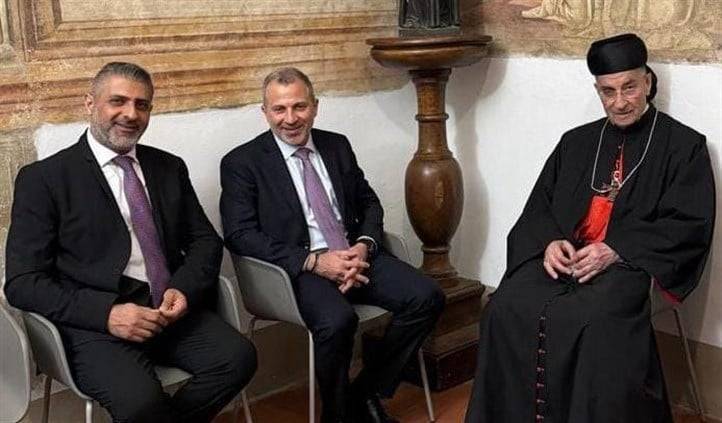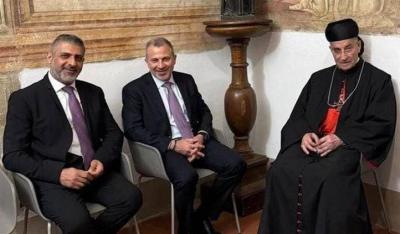Sources from the "Free Patriotic Movement" disclosed to the newspaper "Al-Joumhouria" that it was relayed to them and other parties that the presidential envoy Jean-Yves Le Drian came to brief the parties on the outcome of his previous meetings in Lebanon, and through this, he aimed to inform the Lebanese. They noted that he did not come "bearing a solution to impose" and that he cannot speak on behalf of the quintet group as the Americans clearly informed him, "You are an envoy for your country, France only." The only instance in which Le Drian conveyed a message from the Americans was only after the meeting of foreign ministers in New York, while today he carries only his country's message. The same sources believe "Le Drian does not harbor the illusion that he can make any breakthroughs."
In this context, other sources from the movement added that "there are no negative intentions regarding the lack of a meeting with Le Drian because he visited the movement, as did French Ambassador Hervé Magro after the misunderstanding that occurred following the famous meeting at the Mirna Chalouhi Center," explaining that the head of the movement, MP Gebran Bassil, is tied to a previous European tour, and he informed Maronite Patriarch Mar Bechara Boutros Al-Rahi about his long tour during their meeting in Florence.
Regarding the details of the meeting between Al-Rahi and Bassil, sources from the movement told "Al-Joumhouria" that they consulted and discussed the presidential topic in detail, as well as the issue of the Bkerki document and how it could be a truly national document that ensures the necessary pressure to complete the presidential entitlement and secure partnership. They added, "The head of the movement did not propose names for the presidency." No mention was made of whether Al-Rahi proposed any names that he sees as compatible with the specifications of the president. The sources added, "The goal for the head of the movement from the meeting, as he told Al-Rahi, is to complete these negotiations among the Christian leaders, personalities, and parties and produce something or a solution. The head of the movement believes that these meetings should yield two outcomes: first, the document must be national and should not lead Christians to divisive atmospheres or the like. Second, the document must be accompanied by a series of procedures agreed upon by the parties and with an effective field character, so that if the refusal or delay in erasing the president and not holding elections continues, one cannot confront the refusal with silence. Bassil told the Patriarch that 'silence without practical action means keeping the situation as it is, that is, the dominance of various factions participating in the government, control over the president's decision, and the erasure of Christians, returning to the pre-2005 stage where Christians regained their presence and partnership.'"
The sources revealed that "Bassil was clear in his words with Al-Rahi as he distinguished between the Free Patriotic Movement's unwavering conviction regarding supporting the resistance in any action it undertakes to defend Lebanon and the political stance that says, 'We cannot link the presidential entitlement and the fate of the country with the wars in Gaza.' This stance is not directed against 'Hezbollah' from a position of rejecting resistance but from the movement's insistence on not entangling Lebanon in other wars while fully understanding the moral reasons that make Hezbollah supportive of the Palestinians. However, we cannot proceed aimlessly into a battle whose end and timing we do not know, especially when the war in Gaza may not end, while we are linking ourselves and the presidential entitlement to that war. If Israel attacks us while supporting the party, that is another matter."
The sources indicated that "Al-Rahi understands the situation and comprehends the sensitivities in Lebanon." They added that "the movement and its representatives have sensed from Al-Rahi on more than one occasion during the sessions held in Bkerki his keenness for the Bkerki document to be national and not merely a Christian document," according to "Al-Joumhouria."




